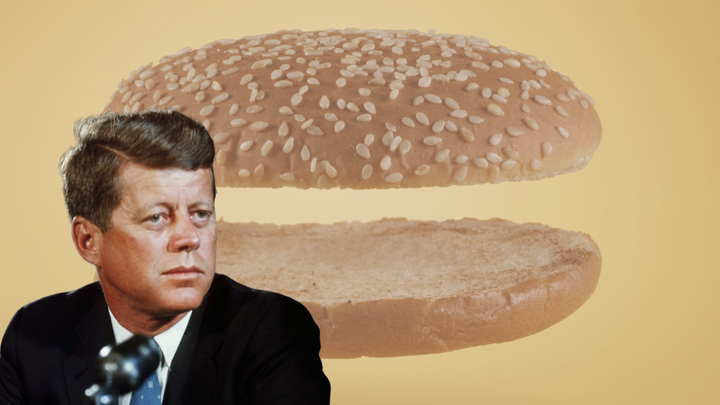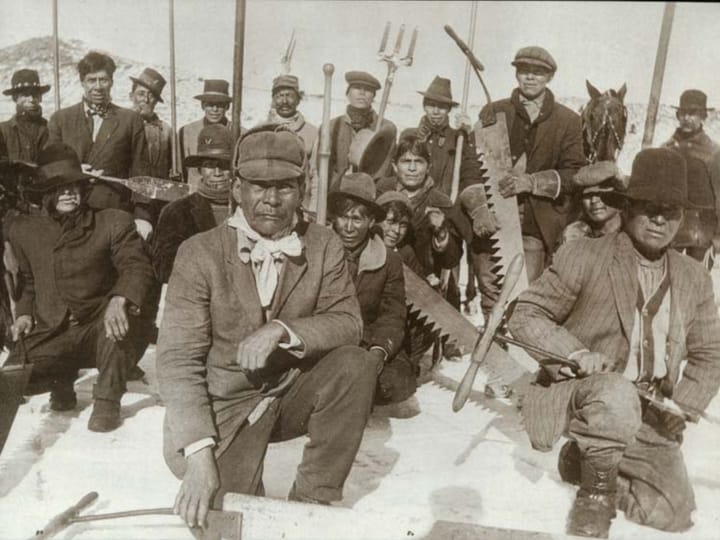Is history disappointing? Or is it just me?
History can't always fulfill the expectations people have of it. I'm a flawed guy, in a flawed profession.

I sure have been disappointing a lot of people lately. Much of it comes, I realize, from the fact that my public visibility as a historian has increased in the last few months as a result of my YouTube channel. More people have seen my stuff since July 2023, and as a result people reach out to me a lot more often than they did before. On the whole that's very good; the vast majority of interactions I receive in the form of YouTube comments, emails or other communications has been positive. A few are wholly negative – most often, outrage that I don't believe in a conspiracy to assassinate President John F. Kennedy – and those kinds of interactions I can disregard. But there's a weird category in-between that I was not really prepared for and am still trying to figure out how to process: people who are enthusiastic about history and like what I do, but who, for whatever reason, ask me for something I can't give them. Often it's a request I can't fulfill, a question I can't answer, or something based on a misconception, an unrealistic expectation or a false notion that they have in their minds. People in this category invariably go away from an interaction with me disappointed or disillusioned. That has left me thinking, as I have before, about whether history itself is a disappointing discipline, and what happens when it can't support the expectations people often seem to have about it.
The disappointment-inducing interactions often follow a pattern. Someone will write me an email telling me that they saw some of my history videos and really liked them. Then they'll describe some subject in history, often a niche topic or even something quite interesting but generally unknown to the wider public, that they know a lot about or have been studying for years. Then comes the "ask" portion: will I help them write a book about that topic? Will I co-host a podcast with them about it? Will I help them "uncover the truth" about some misunderstood or mischaracterized event in the past? In the past few months I've been asked to help write a book about an ex-Nazi that a man's father met in Germany at the end of World War II, to "expose the truth" of the TWA 800 disaster of July 1996, to unmask the true identity of D.B. Cooper, to make a series of video exposés about how indigenous peoples in South America are being forced by greedy corporations to pick cocoa beans, and various other subjects. The topics vary, but the "ask" stems from a very basic and indeed admirable desire: people hope I will share their passion for a particular subject or sign on to their crusade, whatever it is, that is deeply meaningful to them.
In the real world of course I can't grant even a tiny fraction of these requests. A couple of months ago I had to write some basic scripts to respond to these interactions, pleading the usual (quite true) conditions: I teach six classes a week to middle schoolers, almost all the rest of my time is taken up with making videos and my other historical work, my list of potential video topics that I want to cover is already years long, etc. Sometimes the request founders on some historical basis: the cause of the TWA 800 disaster, for instance, is already well-known, a faulty center fuel tank, and there is no "hidden truth" to discover. Sometimes it's something else: I have no power, for example, to correct the perceived errors on a local historical association's website, even if the person imploring me to has slam-dunk proof that they're errors. The history profession doesn't work that way. But everyone who makes these sorts of requests goes away disappointed in one way or another.

Part of this phenomenon is, I think, that history itself is sometimes disappointing. Take D.B. Cooper, for instance. One of the most famous unsolved mysteries in recent history, in 1971 a brazen criminal hijacked a Northwest Orient airliner over Washington, collected $200,000 in ransom and jumped off the plane with a parachute. The identity of the hijacker is unknown and probably will be for all time. Law enforcement hasn't been able to solve it for the past 53 years, but it's like catnip to armchair sleuths, hundreds of whom have over the decades come up with hundreds of suspects, usually based on some obscure or unrecognized clue that they think "proves" that D.B. Cooper was actually their late father-in-law or something to that effect. This seems like a mystery that somebody should be able to solve, and now that it's so far back in the past, a historian, even an amateur one, is more likely to do it than anyone else. The truth is, though, that the evidence to "prove" the identity of D.B. Cooper, once and for all, simply doesn't exist. I understand why people get fascinated with stuff like this. But "we'll never know" is not a very satisfying answer, even if it's the correct one.
The Kennedy assassination, about which I've written before (and done videos on), is another example. Most people reject out of hand, vehemently and doggedly, the provable historical truth that Lee Harvey Oswald was the sole assassin of John F. Kennedy, and that Oswald did not act in tandem with or at the request of anyone else. The reasons why they reject this truth are complex, but at least part of it is disappointment: it's hard to accept that the most powerful man in the world could be blown away by an inconsequential ne'er-do-well, a 24-year old drifter who had failed at everything in his life up until the three shots he successfully made on that tragic autumn afternoon in 1963. Again, it seems like history should be able to provide answers here that are commensurate with the magnitude of the event. "Oswald did it" seems, to many, instinctively like a cop-out. It's not, but it seems that way.
Almost all of the people who write to me are well-meaning. I don't fault them for their occasional misconceptions about what the profession of history is and what its practitioners do – after all, I didn't know those things myself until I went to graduate school in history. Some have legitimate problems or stories they want to tell that are worth telling and should have more light on them. Honest and responsible engagement with the past is always a good thing, in my view. I suppose my chagrin at sending off another disappointment-inducing email, as I now have to do much more often than I used to, is born in part out of a hope that the disappointment others experience as a reaction to me doesn't sour them on engaging with history as a whole. I can only do what I can do, and have time in this short life to do. I also practice in a profession that, as often as not, does not live up to expectations. Life is disappointing. So, sometimes, is the past.
The Value Proposition
Why should you be reading this blog, or receiving it as a newsletter? This is why.
☕ If you appreciate what I do, buy me a virtual coffee from time-to-time to support my work. I know it seems small, but it truly helps.
📖 You could also buy my newest book.
🎓 Like learning? Find out what courses I’m currently offering at my website.
📽 More the visual type? Here is my YouTube channel with tons of free history videos.



Comments ()